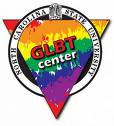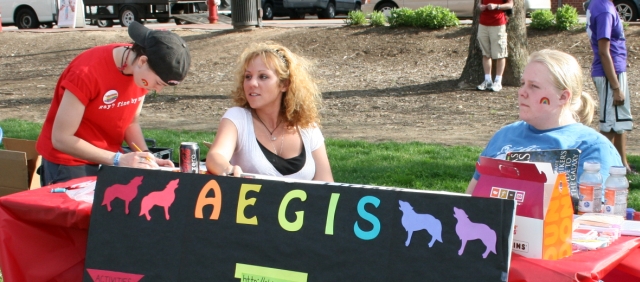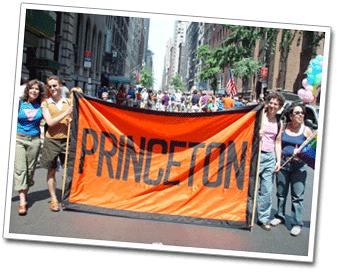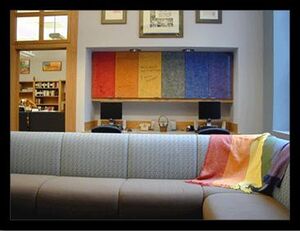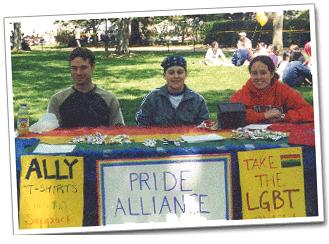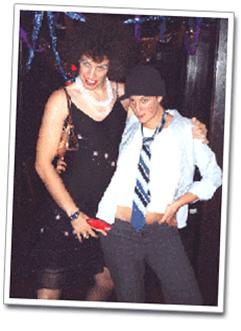LGBT Calendar Events At Universities Across America
This page is to explore the various calendar events of LGBT communities at various universities and colleges across America. I thought it would be interesting to see what schools are doing across America to better our program at Rutgers University and to maybe provide other clubs across America with ideas of LGBT events.
Indiana University
http://www.google.com/calendar/embed?src=glbtsecr%40indiana.edu&ctz=America/New_York
Boston University http://people.bu.edu/spectrum/
UCLA http://www.lgbt.ucla.edu/eventcalendar1.html
University of Arkansas http://pride.uark.edu/calendar.html
University of Connecticut http://classguides.lib.uconn.edu/content.php?pid=22174&sid=158586
University of Iowa http://www.uiowa.edu/~glbtau/2009_11_Calendar.html
University of Kansas http://www.calendar.ku.edu/index.php?option=simplesearch&keyword=lgbt&go=Go
University of Maine http://www.umaine.edu/wildestein/
Florida State University http://sga.fsu.edu/pride/calendar.html
Penn State http://www.events.psu.edu/cgi-bin/cal/webevent.cgi?cmd=opencal&cal=cal297&
University of Florida http://www.multicultural.ufl.edu/calendar/index.php?department=lgbt
North Carolina State University http://www.ncsu.edu/stud_affairs/glbt/pdfs/EWH%20Fall%202009.pdf
Virginia Tech University http://www.lgbta.org.vt.edu/calendar.htm
Northwestern University http://www.northwestern.edu/lgbt/events.html
Michigan State University http://www.lbgtrc.msu.edu/
New York University http://www.nyu.edu/lgbt/events.html
University of Maryland http://www.lgbts.umd.edu/resources.html
University of Chicago http://lgbtq.uchicago.edu/involved/calendar.shtml
North Carolina State University Information:
Numerous universities throughout the nation have started partaking in the acceptance of the LGBT community within their diversity programs. As I researched links to LGBT calendars for different universities, an array of websites loaded; many had history pages, with calendars and events of current campus involvement within the LGBT society. Though most schools had an easily accessible LGBT link, they lacked the resources to have a fully funded program, with an actual LGBT center or full acceptance from the universities community. As I personally researched some of the larger universities throughout the US, North Carolina State University brought back memories I felt were worth sharing. I visited their LGBT homepage, and within seconds had found a calendar of events, history pdf, research center, staff, photo gallery, and links. I instantly realized this school needed recognition in their work and involvement as a new LGBT community school.
On January 23, 2008, NCSU opened an official LGBT center on campus. After a year in the making, the LGBT community had pressed for this center in the 2006-07 academic calendar years. The UDAC, Student Senate, and Faculty Senate endorsed the proposal, and then in January of 2008, it was officially opened. Along with this ceremony, NCSU joined “the Consortium of Higher Education LGBT Resource Professionals and the American College Personnel Association (ACPA) Standing Committee for Lesbian, Gay, Bisexual, and Transgender Awareness.”
The main GLBT page for NCSU offers six different links; home, about us, programs and services, important information, resources and supports, and contact us. The initial homepage broadcasts GLBT news within the community and throughout the US; the “breaking news.” The about us link reads NCSU mission statement and main functions. Their mission statement reads, “The mission of the NC State GLBT Center serves the mission of NC State University by creating, maintaining, and strengthening an inclusive and safe campus environment for people of all sexualities and gender identities. This is accomplished through awareness and educational programs, individual consultation and referral, student organization advisement, advocacy, ally support and development, and community outreach on and off campus. The Center supports success by working to create a campus that is both diverse and inclusive and conducts ongoing assessment to monitor its progress in this regard.”
While reading this statement, a red box appeared on the side of the website. Along with educating their own community within the university, NCSU is also bringing awareness to its local high schools. Part of the college experience is learning to advocate for many of our beliefs. As university students within the LGBT community, it is important that we spend the time to encourage the acceptance of lesbians, gays, bisexuals and transgendered individuals, not only in college, but in the years that make or break us; high school! It was enlightening to see a university partake in outreach throughout its high school community. Education is the key to success as far as I am concerned, therefore, educate acceptance at as early of an age as possible. High school is a start!
While searching through the programs and services link, I came across the AEGIS and Delta Lambda Phi organizations. AEGIS (Accepting and Embracing Gender Identity and Sexuality) is NCSU’s GLBT student organization on campus. There purpose is to provide a voice for the GLBT communities students. Together, these two organizations, the GLBT center and AEGIS provide meaningful projects and programs within the university and neighborhood community.
On the other hand, the Delta Lambda Phi organization is “a national fraternity providing social, service, and recreational activities for gay, bisexual, and progressive men since 1986. They are one of the fastest growing fraternities with more than 25 chapters and 7 colonies across the nation.” NCSU also offers mentoring programs, coffee talks, and Project Safe; an ally training program offered multiple times throughout the year. This program runs approximately three hours, and encourages education, sharing of knowledge and ideas, openness to diversity, and active participants. They also have a link to their own website.
The next two links are important factual information for any LGBT student on campus to be made aware of. The important information link offers statistics on hate crimes, terminology, housing, policies, coming out, etc.; important information to becoming acquainted within NCSU’s LGBT community. However, the resources and support link offers a wide array of on-campus resources, local resources, and national resources; all ranging from health to religion within LGBT communities.
Because the main focus of this OutHistory.Org page is to provide various calendar events of LGBT communities throughout different universities, I think it is important to at least include a brief clip of NCSU calendar for the month of October, GLBT awareness month. It is important to note that only as of January 2008, NCSU opened up its GLBT center. Yet within the year, the monthly calendar is filled with events.
OCTOBER - Sunday 11th: National Equality March in Washington, DC, all day Monday 12th: Tunnel Painting, 10pm-12am Tuesday 13th: T-shirts on the Brickyard, 11am-1pm Tuesday 13th: Diversity Panel Discussion, 4pm-6pm West Campus Tuesday 13th: Project SAFE ally training, Talley, 6:30pm-9:30pm LDS session Tuesday 13th: HRC 101, Talley, 8pm-10pm Thursday 15th: Diversity Dialogue, Witherspoon, 3pm-5pm Friday 16th: Blue Jeans Day, all day on campus Friday 16th - Sunday 18th: Crape Myrtle Tennis Classic, Raleigh Saturday 17th: Raleigh is Coming Out Party, Downtown Raleigh, 5pm-10pm Monday 19th: Pursuit of Equality documentary, Witherspoon Cinema, 7pm Tuesday 20th: Pursuit of Equality documentary, Talley, 12pm and 8pm Thursday 22nd: Lawful Wedded Rights - Marriage Equality Friday 23rd: Marriage Equality - A Frank Discussion Tuesday 27th: Project SAFE ally training, Talley, 1:30pm-4:30pm Tuesday 27th: What Did Jesus Say About Homosexuality?
Overall, I was very impressed with the different organizations, events, and programs offered through NCSU. However, as I visited different sites, there was a large proportion of schools that had recently opened up LGBT chapters and centers, compared to other universities such as Rutgers that have had programs for years. We often speak about the differences in location in my current Lesbians and Gay Men and Society class, yet I had never fully understood the degree of difference depending on one’s location. I understand that there are rural verse urban areas, Rutgers University falling in the center of the spectrum. Yet, for schools to start taking the initiative to stand behind ALL their students only in the year 2006 is very degrading. Though much of my research has yielded towards the fact that most state schools have LGBT communities and programs, I still wonder how much farther we have to come, at the university level, to make individuals more aware of the differences among all types of people.
In all, when I look back at the different angles to define what constitutes a school beyond the classroom education, I have always been proud to be a Rutgers’ student. In many of the obstacles we have faced, students have come together to fight for what they believe in. We have formed a school of acceptance, diversity, education, and liberalism. As students decide what school best fits their educational needs, I hope this website can encourage a choice. These schools are making large steps in its own community, whether LGBT or the whole student body. Therefore, if they are willing to stand for each individual student’s needs, they hopefully will be willing to stand for each of ours.
“Tolerance implies no lack of commitment to one's own beliefs. Rather it condemns the oppression or persecution of others.” John Fitzgerald Kennedy
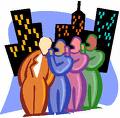 North Carolina State University...
North Carolina State University...
where EVERYONE is welcome!
Princeton: An LGBT-Friendly Campus:
Selecting a college to attend is an arduous and confusing process for all teenagers. This process could be further complicated for someone who is looking for a specific college that meets certain criteria, such as whether they have certain sports, clubs, or organizations they can join. For an LGBT student, it is especially important to attend a college that will guarantee them a good, safe college experience. Princeton University is obviously a well known Ivy League school, but is also considered one of the top 20 universities for LGBT students. They have an LGBT center that provides “educational, social, and supportive programming, along with training sessions and consultations” as well as a plethora of events, student organizations, and university programs. Princeton’s LGBT community is an active one, guaranteed to make any student feel right at home.
Princeton’s LGBT history dates back to 1989, when the Dean of the Chapel and Dean of Student Life hired graduate students to manage LGBT student activities. This organization kept growing into a thriving community and gained a lot of popularity. In the spring of 2002, students Gabriel Barrett, Sue Dyer, Jan Runkle, Vigi Sklar, Kris Kersey, and Chad Klaus began writing and editing a proposal with the help of alumni for the creation of an LGBT center. This proposal was presented in 2003 to Shirley Tilghman (who was the President for Campus Life then) who immediately “recognized the need for increased support and resources for the LGBT campus community”. In the summer of 2005, it was announced that the LGBT Student Services office would become the LGBT Center, joining other centers such as the Fields Center, Women's Center, and International Center. Construction for the LGBT Center began in October 2005, and it was finished in March 2006.
Princeton’s LGBT Center’s goal is to “enhance the Princeton University campus community and to ensure the advancement of students’ academic pursuits by creating an open and affirming environment void of homophobia, heterosexism, and gender bias”. The LGBT center is known for being a supportive place to discuss important topics that many LGBT students are faced with, such as coming out, sexual orientation, gender identity, discrimination, etc. They also provide a monthly programming calendar that provides a list of LGBT social events that the center holds each semester as well as an LGBT Announcement List that sends emails to students about upcoming events. The center also has a resource room and library filled with informational books, journals, and brochures, a workstation and office for LGBT organizations, and a Rainbow Lounge filled with LGBT resources, which is also known for its programs, meetings, as well as being a place to hang out and study.
In addition to the LGBT center, Princeton also provides other resources for LGBT students. They boast gender neutral and unisex bathrooms and have a list and map of where these bathrooms can be located. They also have many health services for all students seeking information about LGBT health such as STIs, HIV/AIDS, safer sex practices, birth control methods, preconception/contraception counseling, general sexual health care, pregnancy option counseling, and initial prenatal care with community referrals. These services address health issues including nutrition and eating concerns, alcohol and other drug abuse, sexual health and relationship issues, physical illness, stress, depression, and anxiety. Princeton also provides counseling and psychological services that offer personal counseling and group therapy not only for LGBT students but for those who are questioning their sexuality. Additionally, they have a service called SHARE (Sexual Harassment/Assault Advising, Resources and Education) where students can go to talk about or report any incidents regarding sexual harassment.
Princeton has many student organizations and groups as well as university programs that are available for all students to join as well as faculty and alumni. The student organizations including Transcending Boundaries (The Gender Group), Questioning and LGBT Athletes Group, First-Year LGBTQ Group, Support Group for LGBTQ students, Pride Alliance, Queer Radicals, Queer Graduate Caucus, LGBT Peer Educators, and Jewish/Interfaith LGBT Group. The university programs include the LGBT Task Force, Ally Project for students, Faculty/Staff LGBT group, the LGBT Peer Education Program, and LGBT Guest Lecture Series. These organizations are all responsible for the monthly, daily, and annual LGBT related events and activities that occur at Princeton. Not only do these organizations involve themselves in organizing LGBT related events, but groups such as the Program in Latin American Studies, Program in American Studies, University Health Services, Alcohol Initiative also promote and support these events.
Princeton has many diverse events that can suit any student’s interest. Examples of these miscellaneous events and their sponsors can be seen in the September event calendar, which hosted many events dedicated to making students feel welcome and accepted at Princeton, as well as events devoted to bringing students together in social situations. Events in September were the Pride Alliance Ice Cream Social (sponsored by the Pride Alliance), the LGBT Graduate Student Reception (Sponsored by the Graduate School and LGBT Center), Carl A. Fields Center Grand Opening Celebration: Back to School Bash, the Welcome Back BBQ (Sponsored by the LGBT Center, Pride Alliance, and Queer Graduate Caucus, the Program in Latin American Studies) Being LGBT at Princeton (Sponsored by the LGBT Center, LGBT Peer Educators, and SHARE) Pool Party @ the Nevermore, a Gay Resort in New Hope, PA (Sponsored by the LGBT Center), New Jersey Ride Against AIDS Princeton Rest Stop (Sponsored by the Frist Campus Center, LGBT Center, and Student Global AIDS Campaign), and Women in Theatre: Issues for the 21st (Sponsored by the Lewis Center for the Arts and the Program in the Study of Women and Gender).
Princeton also acknowledges important events for LGBT individuals such as the Bisexual Day Celebration, LGBT Awareness Week, National Coming Out Day, National Equality March, Transgender Day of Remembrance Service, and World AIDS Day. They also have events that happen monthly, and a some that occur daily. Examples of monthly events are the Queering the Color Line Family Dinner (which occurs every third Sunday the month) Chattin’ with the Chaplain (Second Wednesday of the month), and Drop-in Hours for the LGBT Community (discuss sexual health, every third Tuesday of the month). A daily event is “The Daily Grind” which is held in the rainbow lounge and provides free coffee or tea for students in the morning.
These events are extremely beneficial to students because it allows them to build connections with other students who share similar interests, and also helps them learn more about themselves and organizations that can help these students if they are ever in need. Some of my personal favorite events are “Hey Mom, I’m Gay!: Coming Out to Family & Friends,” which is held in December and is basically a discussion group for students who have made the decision to come out to their loved ones over winter break, but are not sure how to go about doing so. This event allows one to negotiate how they will come out to family and friends by talking to their peers and engaging in discussion with others who are willing to share their personal coming out experiences and the challenges they faced afterwards. I feel like this is a great event because coming out is a struggle that every LGBT individual has had to deal with, and this allows them to clarify a lot of questions that they may have and also offers them a great deal of support that is necessary in a life altering event like this. A few other fun events that Princeton holds is the “Gender Bending Day” which encourages students of all orientations to dress in whatever fashion they want that would transcend gender boundaries, the Big Gay dance , and the Drag Ball where students dress in drag and win prizes for specific categories.
All in all, it is easy to see how Princeton is one of the top 20 LGBT friendly schools. The school and its organizations do a great job of providing a supportive, safe and welcoming environment for LGBT students. By providing beneficial services such as free sexual health care and psychological clinics, Princeton has allowed its students to flourish and maintain a safe lifestyle. Acknowledging important LGBT events and certain needs that many students may not be familiar with (such as gender neutral bathrooms) is promoting tolerance and acceptance among the whole student population. Princeton’s mission is to “create a safe and supportive academic environment through educational opportunities and advocating for the needs and concerns of LGBT students” and I feel like they have definitely achieved this goal.
